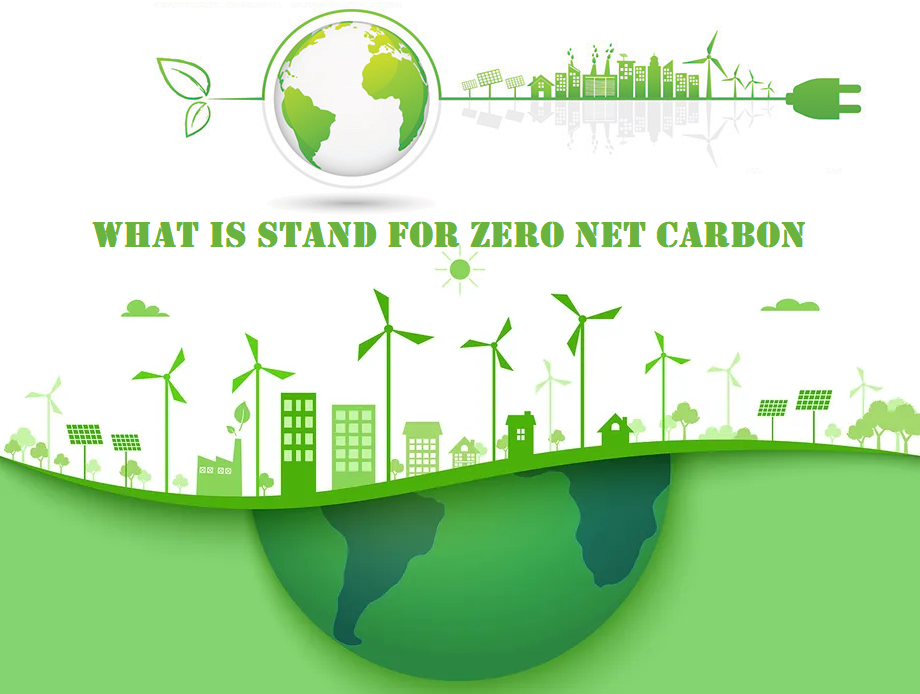- FREE Express Shipping On Orders $99+

What is Stand for Zero Net Carbon
Zero net carbon, also known as Zero Net Carbon (ZNC), refers to a state where a building or entity is highly energy efficient and produces on-site or procures enough carbon-free renewable energy to meet its energy consumption needs annually. This concept aims to mitigate the impacts of CO2 emissions from fossil fuel-based energy consumption by reducing carbon-based energy use through building design strategies, energy efficiency measures, on-site renewable energy generation, and the procurement of locally produced off-site renewable energy. Achieving zero net carbon involves establishing a balance where the total carbon-free energy consumed equals the energy produced.
The Benefits of Achieving Zero Net Carbon
The benefits of achieving zero net carbon extend beyond environmental considerations to encompass cost savings, improved reputation, health benefits, and long-term sustainability for businesses and the planet.
-
Reduced Greenhouse Gas Emissions
By striving for zero net carbon, organizations can significantly reduce their carbon footprint, contributing to the global effort to combat climate change.
-
Lower Energy Costs
Implementing measures to reduce carbon emissions often involves enhancing energy efficiency, leading to cost savings on energy consumption.
-
Enhanced Reputation and Competitive Advantage
Embracing net zero strategies can boost a company’s reputation, attract investors, and appeal to environmentally conscious consumers, providing a competitive edge in the market.
-
Environmental Protection
Achieving zero net carbon helps in preserving the environment by reducing pollutants in the air and mitigating the impacts of climate change, ultimately contributing to the health of the planet.
-
Health Benefits
Transitioning to zero net carbon can lead to improved air quality, resulting in significant health benefits such as saving lives by reducing premature deaths associated with air pollution.
-
Business Growth and Resilience
Adopting net zero strategies not only helps in improving the environment but also supports business growth, cost savings, and enhances business resilience in the face of changing energy landscapes.
The Challenges of Achieving Zero Net Carbon
Achieving zero net carbon emissions involves overcoming a range of challenges related to setting realistic targets, financial constraints, operational changes, supply chain alignment, upfront investments, political will, technical advancements, data management, and fostering a culture of change within organizations.
-
Creating Realistic Carbon Targets
Establishing realistic carbon targets over the long term is crucial, requiring companies to develop strategies based on science-based frameworks and principles.
-
Budget Barriers
Cost is a significant barrier for many companies, as investing in carbon removal technologies and research for emission reduction can be financially challenging.
-
Making Carbon Reduction a Reality
While carbon reduction is a key step, implementing it can be complex, involving changes in operations, raising awareness, and managing external relationships effectively.
-
Supporting and Streamlining Supply Chains
Ensuring that supply chains are aligned with net-zero goals and making necessary adjustments to support the transition pose challenges for organizations.
-
Vast Upfront Investment Costs
The transition to net-zero requires substantial upfront investments in research, development of new technologies, and infrastructure, which can be economically challenging for many industries.
-
Political and Regulatory Hurdles
Achieving net-zero carbon emissions necessitates strong policies and regulations that incentivize the shift to clean energy sources, but political constraints and competing interests can hinder progress.
-
Technical Challenges
Transitioning to a net-zero carbon emissions energy system demands investments in new technologies like renewable energy, carbon capture, and storage, as well as energy storage solutions to ensure a reliable energy supply.
-
Data Collection and Monitoring
Accurately recording and sharing carbon emissions data is essential but can be challenging for organizations, requiring robust monitoring and reporting systems.
-
Resistance to Change
Overcoming resistance to decarbonization and the net-zero transition within organizations and among stakeholders poses a significant challenge that needs to be addressed through education, communication, and strategic partnerships.



















